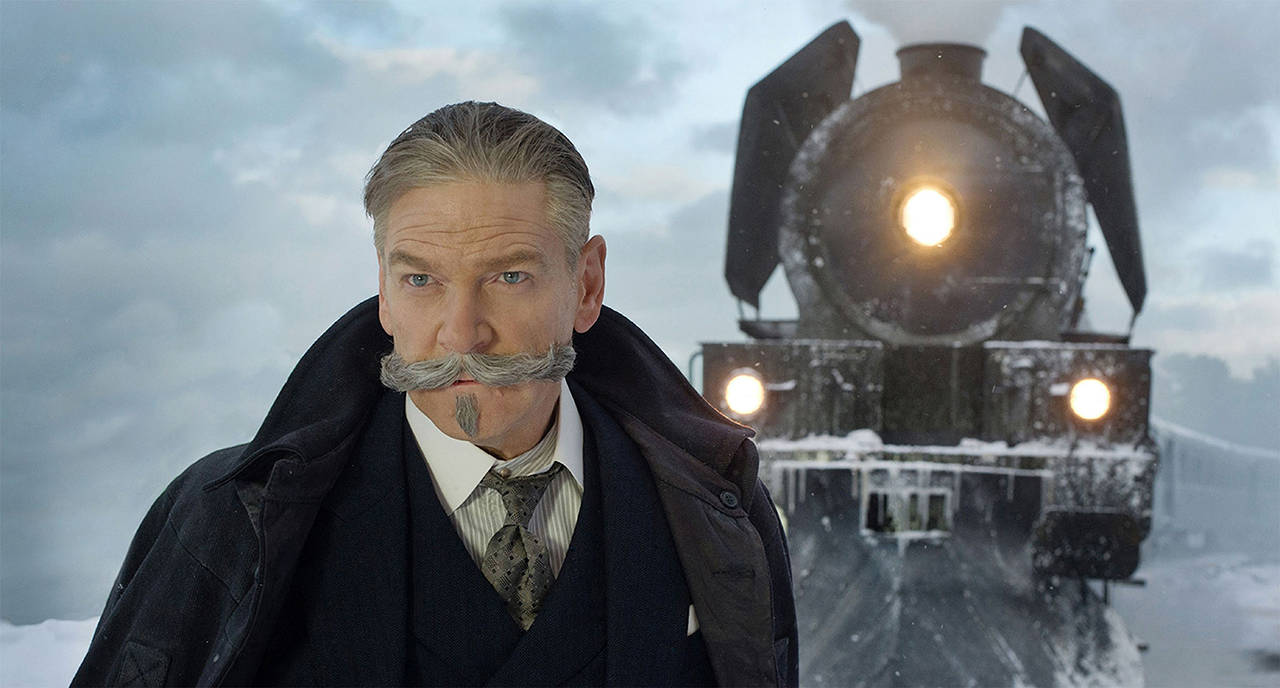When I saw the previews for the remake of “Murder on the Orient Express,” my first thought was that this could be an interesting movie. My second thought was that the filmmakers had better change the ending.
It was, but they didn’t. That leaves the latest big-screen adaptation of the classic Agatha Christie mystery as a moderately entertaining production best appreciated by those unfamiliar with the 1934 novel or the 1974 film adaptation.
This time British actor Kenneth Branagh, who also directed and co-produced, assumes the role of Christie’s master Belgian sleuth, Hercule Poirot.
After solving a theft case in Jerusalem in 1934, Poirot boards the titular train for what he intends to be a vacation. On board, he encounters Samuel Ratchett (played by Johnny Depp), a thuggish American businessman with a dark skeleton in his closet.
Among the others along for the ride are a wealthy divorcee (Michelle Pfeiffer), a missionary (Penelope Cruz), a Russian princess (Judi Dench), a bigoted professor (Willem Dafoe), a young governess (Daisy Ridley) and a doctor (singer Leslie Odom Jr.).
Nearly everyone on board is also hiding a connection to a notorious child abduction/murder case. (The Lindbergh baby kidnapping inspired Christie’s novel.) There are so many secret identities among the passengers that if Poirot had revealed himself as a logger from Humptulips, not many would have been surprised.
After an avalanche derails the train, one of the passengers is bumped off and Poirot is called upon to solve the murder.
The 1974 film version had its problems, most notably the overacting of a miscast Albert Finney — buried beneath mounds of makeup and sporting an almost indecipherable accent — as Poirot.
Director Sidney Lumet overcame some of the deficiencies by delivering a stylish re-creation of time and place (the film received Academy Award nominations for cinematography and costume design) and assembling a powerhouse all-star cast that included Lauren Bacall, Ingrid Bergman (who won a Supporting Actress Oscar for it), Sean Connery, Vanessa Redgrave and Anthony Perkins, among others. It was an enormous critical and financial success, inspiring several lesser screen versions of Christie novels in the 1970s and ’80s.
Even in that production, many filmgoers could guess Christie’s twist ending, so the decision to retain it with only minor variations some 43 years later is puzzling. Remakes of mysteries and thrillers nearly always fall short of expectations unless a different spin is put on the material.
Although Branagh doesn’t quite match the 1974 version in star power, his cast is pretty good.
Long absent from the big screen, Pfeiffer has a nice comeback role as a supposedly man-hungry widow who actually harbors a secret agenda. Depp also makes the most of his limited screen time, but Dench and Cruz in particular are wasted in underdeveloped parts.
Branagh saves the meatiest role for himself. Although his Poirot shows flashes of humor, he’s more reflective and vulnerable than the character is generally portrayed.
As big-screen Poirots go, I’d rate Branagh as a significant improvement over Finney, but still below the level of Peter Ustinov, who played the Belgian detective with the proper blend of wit and hauteur in such Christie adaptations as 1978’s “Death on the Nile” and 1982’s “Evil Under the Sun.”
Neither of the latter two films received much love from reviewers, with critic Leonard Maltin calling “Evil Under the Sun” a “blah” movie.
Maybe so, but both films worked as whodunits — keeping audiences guessing about the identity of the murderer until Poirot inevitably assembles the suspects for a final reckoning.
In contrast, for all but those new to the material, the latest version of “Murder on the Orient Express” is derailed before reaching its final destination.



